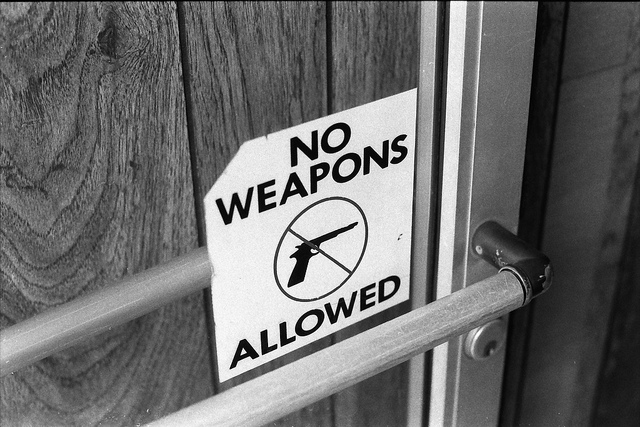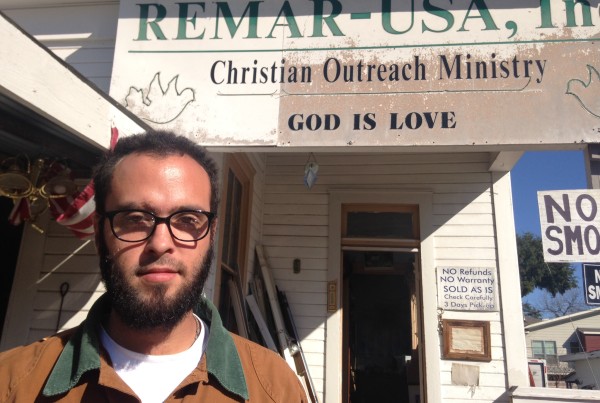Over the last year, the big question with guns in Texas isn’t if you carry, but how and where you can.
But now, gun advocates are pressing Attorney Gen. Ken Paxton to make a decision on complaints stemming from no-gun signs posted on government buildings. Tom Benning, a Dallas Morning News reporter, says the issue is based on an obscure law passed in 2003 that set up a way for gun owners to file complaints about what they felt was improper signage.
“That was kind of under the radar because it was about gun signage, and that doesn’t really get folks talking,” Benning says. “It created a way for Texans to formally challenge signage that government entities are putting up if they feel like they shouldn’t be there.”
Some of the current complaints are about locations that fall into a gray area between government-owned and private entities. Take, for example, the Dallas Zoo: it’s on property that the city owns, but run by a private nonprofit, which would legally be able to prohibit guns.
“That adds a layer of complexity to it,” Benning says. “If the Attorney General’s office does an investigation and says, ‘Actually, you’re in violation,’ this could end up in court, and we could have a judge rule on what these definitions in the code actually mean.”
Though complaints against signs like those posted at the zoos and elsewhere were filed months ago, Paxton’s office has, so far, been moving slowly on addressing them. Benning says it looks as if the process may be starting to move forward on the cases.
“Some (people who have filed complaints) have been checking in with the AG office every month,” Benning says. “We haven’t really seen any sign until late last month that (Paxton’s office) started to make some strides in addressing these complaints in earnest.”
Listen to the full interview in the audio player above.















